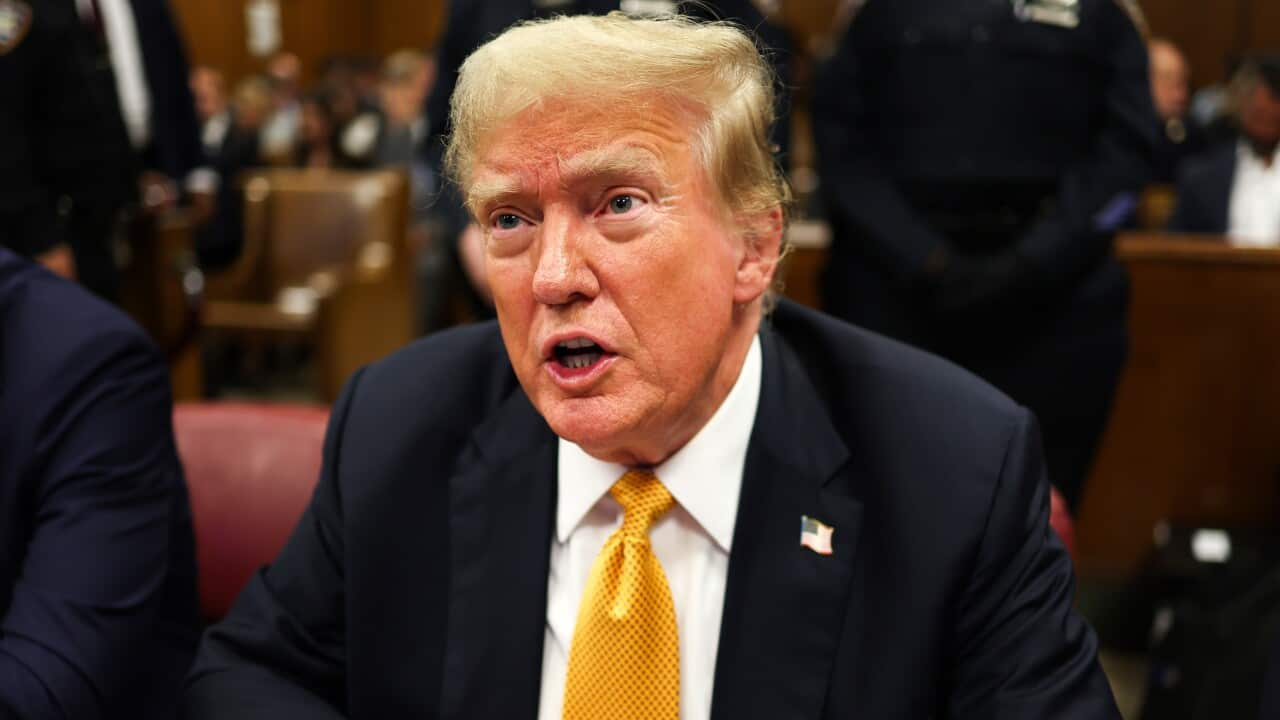Donald Trump has become the first US president to be convicted of a crime after a New York jury found him guilty of falsifying business records to cover up a hush money payment to adult film star Stormy Daniels.
After deliberations over two days,. All the jurors had to agree for the verdict to stand.
What does the conviction mean for his re-election bid and will he go to jail? Here’s a look at what’s next for Trump.
What happens now?
The judge presiding over the case, Juan Merchan, must first approve the verdict and enter a final judgment, though this is typically a formality.
Trump will remain a free man while he awaits sentencing, which is set for 11 July.
In the meantime, lawyers and prosecutors will recommend sentences and then argue over them at Trump’s sentencing hearing, where Merchan will make a decision.
Will Donald Trump go to prison?
The maximum sentence for Trump’s crime of falsifying business records is four years in prison.
It is rare for people with no criminal history who are convicted only of falsification of business records to be jailed in New York. Punishments such as fines or probation are more common.
Defendants convicted of falsifying business records who are given jail time typically serve a year or less, and even in those cases most were convicted of other crimes such as fraud or grand larceny — unlike Trump.
If punished beyond a fine, Trump could be placed under home confinement or subject to a curfew rather than imprisoned.
Trump could also be released on bail while appealing his conviction.
When asked if he would be requesting a prison sentence for Trump, Manhattan District Attorney Alvin Bragg said: “The judge scheduled a sentencing for 11 July. We will speak in court in that time. He set a motion schedule and we will speak in our court filings as we have done throughout this proceeding.”
Can Trump appeal the conviction?
Yes. Trump is likely to make arguments that Merchan rejected ahead of the trial, including that the indictment is legally flawed and politically motivated.
He is also likely to argue Merchan deprived him of a fair trial by making legal errors, including allowing graphic sexual testimony by Daniels — testimony his lawyers said was gratuitous and aimed at inflaming the jury against him.
The defence is likely to argue that the charges themselves were legally improper.
Falsifying business records on its own is a misdemeanour in New York, but is elevated to a felony when done to help commit or conceal another crime.
In this case, Bragg’s office said that other crime was a conspiracy to violate a state election law.
But Trump’s lawyers have argued that state law does not apply to federal elections.
Is Trump’s conviction likely to affect the US election result?
Opinion polls show a guilty verdict could pose significant political danger for Trump in an election that will potentially be decided by just tens of thousands of votes in a handful of battleground states.
One in four Republicans said they would not vote for Trump if he is found guilty in a criminal trial, according to a Reuters/Ipsos poll of registered voters in April. In the same survey, 60 per cent of independents said they would not vote for Trump if he is convicted of a crime.
Republican and Democratic consultants have mixed views about the impact of a guilty verdict.
Whit Ayres, a Republican pollster, doubts that as many as a quarter of Republicans would actually shun Trump over his conviction. But he said even if just a small number of more moderate Republicans and independents are turned off by the guilty verdict, it could help Biden in a close election.
However, Ayres said the nature of the New York case, which was brought by a Democratic prosecutor and relies on untested legal strategies, will help Trump and fellow Republicans frame a guilty verdict as a politically motivated.
“If I were trying to design a court case that would be easy for Republicans to dismiss as a partisan witch hunt, I would design exactly the case that’s being brought in New York,” he said.
Republican consultant Tricia McLaughlin, who worked on former Trump primary challenger Vivek Ramaswamy’s campaign, said she thought a guilty verdict would have a psychological impact on Trump because he hates losing.
It would also divert more financial resources to legal bills because he would be almost certain to appeal, she added.
Bill Galston, an analyst and senior fellow at the Brookings Institution think tank in Washington, said he didn’t expect a guilty verdict would have a significant impact on the presidential race.
“In the end, this amounts to lying about sex. I think the view probably of the majority of Americans is that everybody lies about sex,” he said.
Galston has worked on Democratic presidential campaigns and also served in the administration of President Bill Clinton, whose 1990s tenure in the White House was marked by sex scandals.
Can Trump still vote?
That depends on what his sentence is — and when or if he completes all of it.
Trump’s home state of Florida removes convicted felons’ right to vote.
But most have that right restored once they complete all aspects of their sentence — including probation, parole, and full payment of all restitution, fines and other fees.
That means if he only receives a fine but doesn’t pay it before election day in November, he won’t be eligible to vote.
Could Trump still be president?
Yes. The US Constitution only requires that presidents be at least 35 years old and US citizens who have lived in the country for 14 years.
In theory, Trump could be sworn in from jail on Inauguration Day, 20 January 2025, if he were to unseat Biden.
